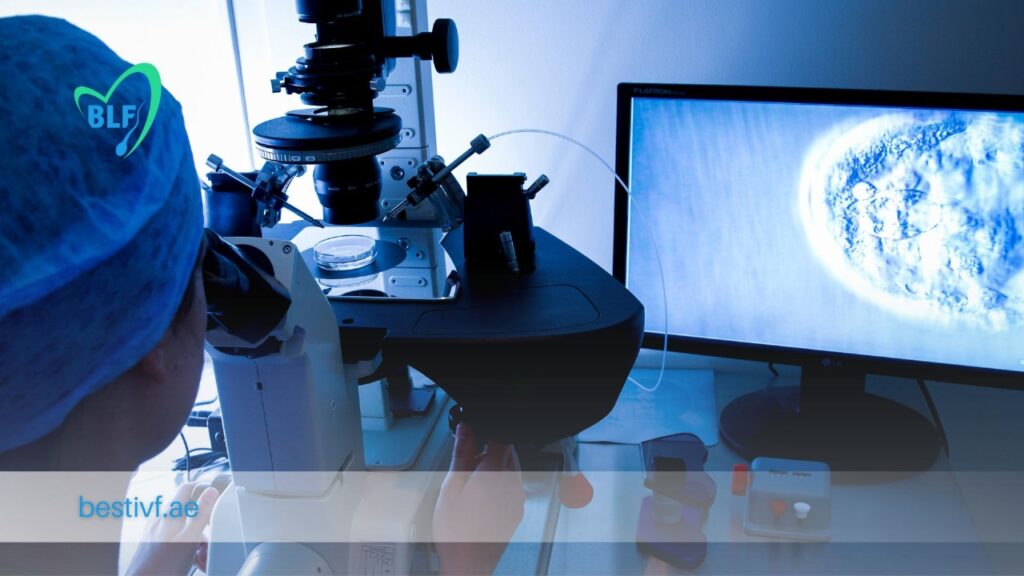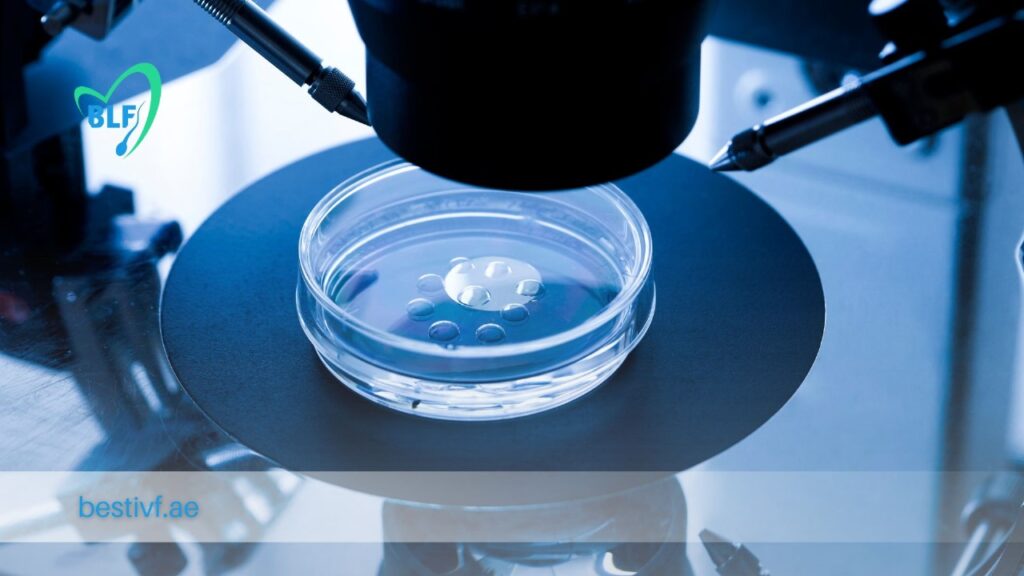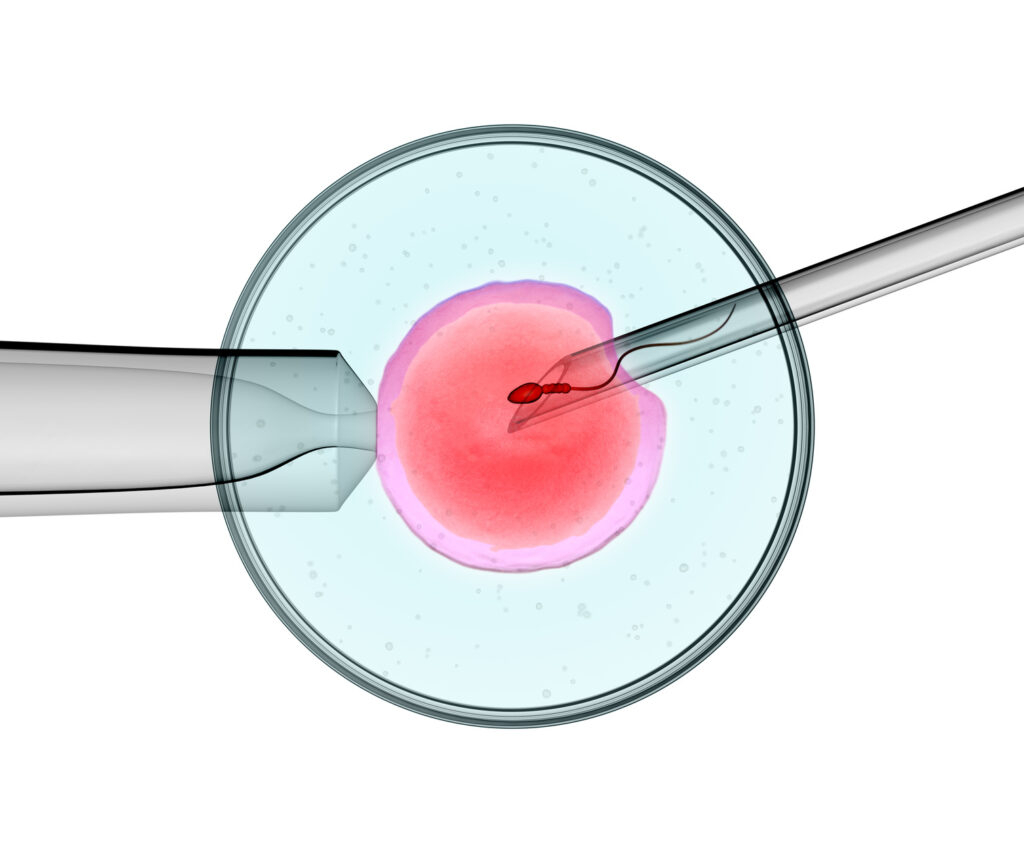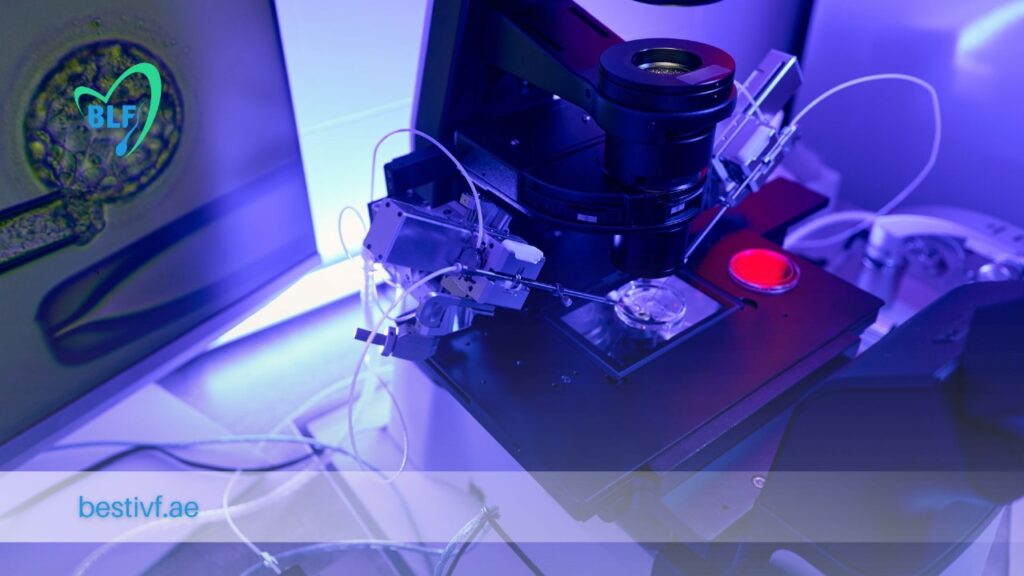In the complex landscape of fertility treatments, Intracytoplasmic Sperm Injection (ICSI) has emerged as a revolutionary solution, offering hope to parents facing challenges in conceiving. Understanding the intricacies of ICSI, its nuances compared to In Vitro Fertilization (IVF), and the detailed process behind this treatment is crucial for those navigating the intricate path to parenthood.
Understanding Intracytoplasmic Sperm Injection (ICSI) Treatment
Intracytoplasmic Sperm Injection is a specialized form of ART that involves the direct injection of a single sperm from the father into the mothers egg, facilitating fertilization. This targeted approach is particularly beneficial for parents dealing with male infertility issues, such as low sperm count or poor sperm motility, also with recurrent IVF failure, or unexplained infertility.

Unlike traditional IVF, where the sperm and egg are combined outside the body in a laboratory for fertilization to occur naturally, ICSI provides a more direct and controlled method to enhance the chances of successful fertilization.
The procedure begins with an ovarian stimulation step, and continues with retrieval of eggs from the mother through a minor surgical procedure known as follicular aspiration. Subsequently, a highly skilled embryologist selects a single, healthy sperm from the father and injects it directly into the egg. This meticulous process increases the likelihood of successful fertilization, addressing specific challenges that may hinder natural conception.
How is Intracytoplasmic Sperm Injection Treatment done?
Understanding the procedural details of ICSI is essential for parents contemplating this fertility treatment. The process involves several key steps:
- Ovarian Stimulation: Before egg retrieval, the mother undergoes ovarian stimulation using fertility medications to encourage the development of multiple eggs.The follicles development is then monitored regularly by ultrasound and blood tests.
- Egg Retrieval: Once the eggs are mature, they are retrieved from the ovaries through a minor surgical procedure using a thin needle to aspirate the eggs under ultrasound guidance. This step takes approximately 10 – 20 minutes and is done under sedation for the patients comfort.
- Sperm Collection: A sperm sample is collected from the father, then a semen analysis takes place to evaluate sperm volume, mobility and quality.
- Sperm Selection and Injection: A skilled embryologist selects a healthy sperm and injects it directly into the egg using a microneedle, ensuring precise and controlled fertilization.The fertilized eggs, now embryos, are cultured for a few days to monitor their development. The goal of monitoring the embryos is to assess their progressive development to ensure transferring the healthiest embryos into the mothers uterus.
- Embryo Transfer: The healthiest embryo/s are selected and transferred into the uterus, to finally result in a successful pregnancy.
Understanding these steps provides prospective parents with insight into the intricacies of ICSI and reinforces the importance of a skilled and experienced medical team.
ICSI vs. IVF: Deciphering the Differences
While both ICSI and IVF are forms of assisted reproductive technology, they differ in their approaches and applications. IVF involves the combination of eggs and sperm from the parents outside the body, allowing fertilization to occur naturally. ICSI, on the other hand, addresses specific fertility challenges by directly injecting a single sperm from the father into the egg.
Expanding on the nuances between these two methods is essential for parents and seeking the most effective fertility solution tailored to their unique circumstances.
When is ICSI the Intervention of Choice?
The decision to opt for ICSI over other fertility treatments depends on various factors which should be evaluated carefully by professionals and experienced doctors.

Some of these issues might be: Parents grappling with male infertility issues, such as low sperm count or motility, often find ICSI to be a tailored solution. Additionally, when previous IVF attempts have yielded suboptimal results, or in some cases of unexplained infertility, Intracytoplasmic Sperm Injection can become a viable alternative to enhance the chances of successful fertilization.
Exploring ICSI and PICSI for Fertility Treatment
In the world of fertility treatments, it’s essential to understand the details of Intracytoplasmic Sperm Injection (ICSI) and its variations. One notable approach is Physiological Intracytoplasmic Sperm Injection (PICSI), which adds an extra layer of sophistication by carefully selecting the healthiest sperm from the father. This improves the chances of pregnancy and enhances the success of the fertilization process.
For those seeking the most effective fertility treatment, it’s crucial to grasp the differences between ICSI and PICSI.
What is PICSI?
PICSI involves choosing the healthiest and most mature sperm from the father for fertilization. At Best Life Fertility Center, we employ cutting-edge sperm selection techniques to boost the success of healthy pregnancies. One such technique is Microfluidic sperm selection, specifically designed to pick functional sperm with minimal DNA fragmentation.
This technique mimics the natural environment of the female reproductive system by using microbarriers for sperm selection. The sorted sperm exhibit better morphology, genetic quality, and more than double the viability and motility compared to unsorted sperm.
By ensuring high-quality motile sperm cells with undamaged DNA, this method significantly increases the success rates of both the treatment cycle and overall PICSI-based fertility treatments, leading to higher chances of successful pregnancies.
Best Life Fertility Center: Navigating the Path to Parenthood
For parents embarking on the journey of fertility treatments, the choice of a specialized center plays a pivotal role. Best Life Fertility Center stands out as a beacon of hope for those parents seeking advanced and personalized fertility solutions. With a commitment to excellence, the center provides comprehensive ICSI treatments tailored to the unique needs of each couple.
Best Life Fertility Center Approach to ICSI
Best Life Fertility Center employs state-of-the-art techniques in ICSI, ensuring precision and efficiency in the fertilization process.

Best Life Fertility Center team of experienced specialists guides patients through every step of the journey, emphasizing a holistic approach to infertility treatments.
From the initial consultation to post-treatment care, Best Life Fertility Center prioritizes individualized care, recognizing that each couples journey is unique.
Best Life Fertility Center success is not only measured by its high successful pregnancy rates but also by the supportive environment it creates for parents seeking to fulfill their dreams of parenthood.
Conclusion: Empowering Parenthood Through ICSI
In conclusion, Intracytoplasmic Sperm Injection (ICSI) stands as a valuable infertility treatment method for parents navigating the complexities of infertility. The addition of Physiological Intracytoplasmic Sperm Injection (PICSI) introduces a refined dimension to the process, optimizing the chances of success.
Best Life Fertility Center‘s unwavering commitment to providing cutting-edge fertility solutions underscores its position as a leader in the field. By focusing on the unique needs of each couple, the center remains dedicated to turning the dream of parenthood into a tangible reality.
Sources
https://rep.bioscientifica.com/view/journals/rep/154/6/REP-17-0374.xml
https://www.sciencedirect.com/science/article/pii/S0143416013001449



I stumbled upon this skin allergy blog while frantically searching for some solace in the vast web of skincare khujli ka ilaj.advice. And let me tell you, reading your stories has been both comforting and eye-opening.